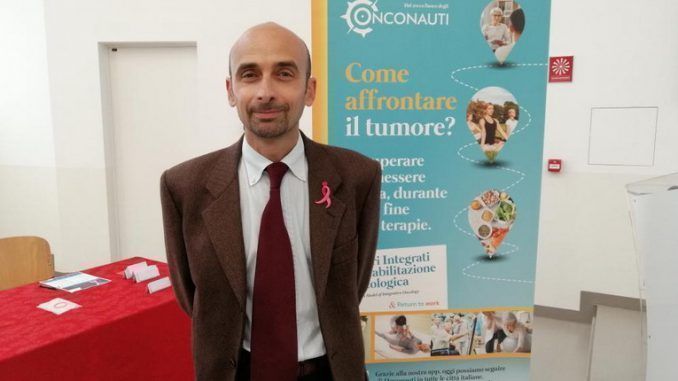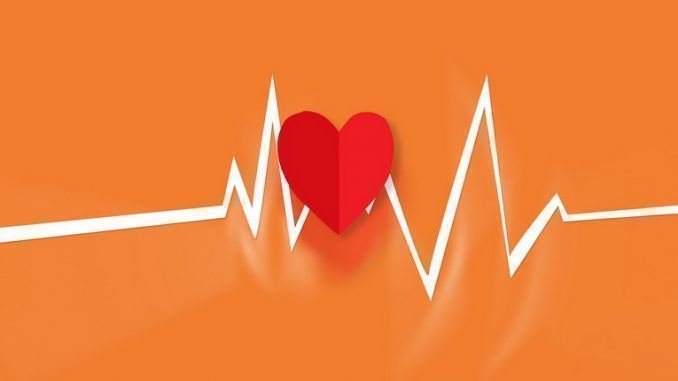Oncology: increasing survival, not yet quality of life
The project has already started in Emilia-Romagna (Bologna, Ferrara, Imola), Lombardy (Milan), Sicily. Now is the time in Lazio, where it is implemented in conjunction with the Komen Italia Center for Integrated Treatments in Oncology at the Fondazione Policlinico Gemelli and presented at the 10th National Congress of the Oncology Association
THE ONCONAUTI FOLLOW UP INNOVATION PROJECT
Tumor survival data are increasingly high, and the current model of oncology care, focused on the acute phase of disease, is becoming less and less relevant and not very useful for many patients. This need is the starting point of the Onconauti Association’s commitment, which has implemented in collaboration with public health institutions an integrated post-treatment rehabilitation program that allows patients to fully reintegrate into social and working life, while also reducing the risk of relapse and other diseases. The initiative has already involved about two thousand people in some centers where it has already been implemented, in Emilia-Romagna (Bologna, Ferrara, Imola), Lombardy (Milan), Sicily.
The Association’s proposal is to open an “experimental laboratory” in search of a new key to interpreting follow up, that of integrated treatments and lifestyle interventions in continuity of care between Hospital and Territory, which sees Networks of Patients’ Associations as an indispensable “hinge” element between these two areas and the presence of “expert” patients at all PDTA hubs.
THE 10TH ONCONAUTI CONGRESS AT THE POLYCLINIC GEMELLI
The new stage of Onconauti now concerns the Capital, where the project is carried out together with the Komen Italia Center for Integrated Treatments in Oncology at the Fondazione Policlinico Gemelli. The presentation of the initiative took place Oct. 8 with the 10th Annual Congress of the Oncona Association “Life after cancer: the line between survival and recovery. New perspectives of oncology follow-up between hospital and territory, thanks to integrated treatments and Telemedicine“.
This was the impetus for a discussion among oncologists, patients, integrated treatment experts and institutions on the need for innovation in the organizational model of oncology follow-up.
THE SCENARIO: NEARLY 6% OF THE POPULATION HAS HAD CANCER
The data that compel reflection on the issue are eloquent. In Italy, about 3 million 609 thousand people are cancer survivors (AIRTUM data 2021), or 5.7 percent of the population. This is a 37% increase in 10 years. Five-year survival increased from 39% in 1990-1992 to 57% in 2005-2007, to 64% in 2019. However, at least 60% of cancer survivors – cured or in remission after therapies – have physical or psychological symptoms and need for supportive therapies currently unrecognized by the current model of taking care (oncological follow-up). “In the last 30 years we have seen cure rates that, in cases of early diagnosis, can reach 90% of cases – explains Dr.
Stephen Magnus, Breast surgeon at the Fondazione Policlinico Gemelli – The trend has improved for almost all solid tumors. For breast cancer, for example, cures exceed 90 percent of cases, with a 10-year survival rate of more than 80 percent. Fifty-five thousand new women fall ill each year in Italy: considering survival data, one can guess the exponential increase each year of these patients. Similar is true for colorectal cancer: incidence is increasing, but cure rates have improved. This picture opens the prospect of long survival, which, however, poses the challenge of quality of life.
One problem is excess weight, with the patient adopting or accentuating a sedentary lifestyle, causing risks for other diseases as well (cardiovascular, metabolic, diabetes, etc.), which can lead to a risk of a high level of risk.). Then there are social life needs, mood disorders, anxiety, fear of recurrence, with psychological consequences, as well as hot flashes, poor sleep quality, fatigue, sexuality issues. These are all important health needs that women often fail to express, have no remedies, suffer a psychological blockade so that often these problems do not even emerge but remain submerged.
Hence the need for a new model“.
THE ONCONAUTS’ PROJECT
“We are discounting an almost total absence of integrated rehabilitation pathways for the growing number of patients overcoming cancer. This implies for them a difficulty in resuming a normal life – emphasizes Stefano Giordani, Scientific Director Oncona Association – The Oncona Association for the past 10 years has validated a new method of integrated oncological rehabilitation: it consists of treatments such as non-pharmacological activities that have been proven scientifically effective in intervening against various disorders, which can be carried out in the presence and remotely. Patients are offered a personalized program of integrated treatments, such as yoga, acupuncture, or shiatsu classes; lifestyle interventions to establish a healthy diet and engage in regular physical activity; receive psychological support (art therapy, mindfulness, etc.); and, in case of specific needs, physiotherapy sessions. The combination of these three elements (integrated treatments, proper lifestyle, psychological support) in a three-month course demonstrated improvement in quality of life and symptoms in 86% of participants, who can then resume work activity.
Anxiety, depression, pain, fatigue are reduced, mental and physical efficiency is improved. These types of interventions, the scientific literature confirms, are also able in more frequent cancers to reduce even the risk of disease recurrence and increase survival, thus becoming an integral part of cancer treatment itself. Fundamental in this pathway turn out to be the technology for Telerialization, the presence on the territory and the personalization of interventions.
By applying this model, it will soon be possible to transform oncology follow-up into a “Precision Survey,” based on multidisciplinarity, with oncologists working as a team with psychologists, nutritionists, and experts in integrated therapies being able to intervene not only on the treatment of the disease, but also on the well-being of the person and his or her family members“.


